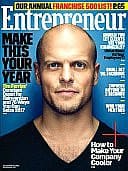FREE TELESEMINAR: 6 Keys To Outrageous Success As An Author
Who Do You Want To Contact?
Book endorsements can be a great way to add credibility and interest to your book.
How To Get Celebrity Book Endorsements…
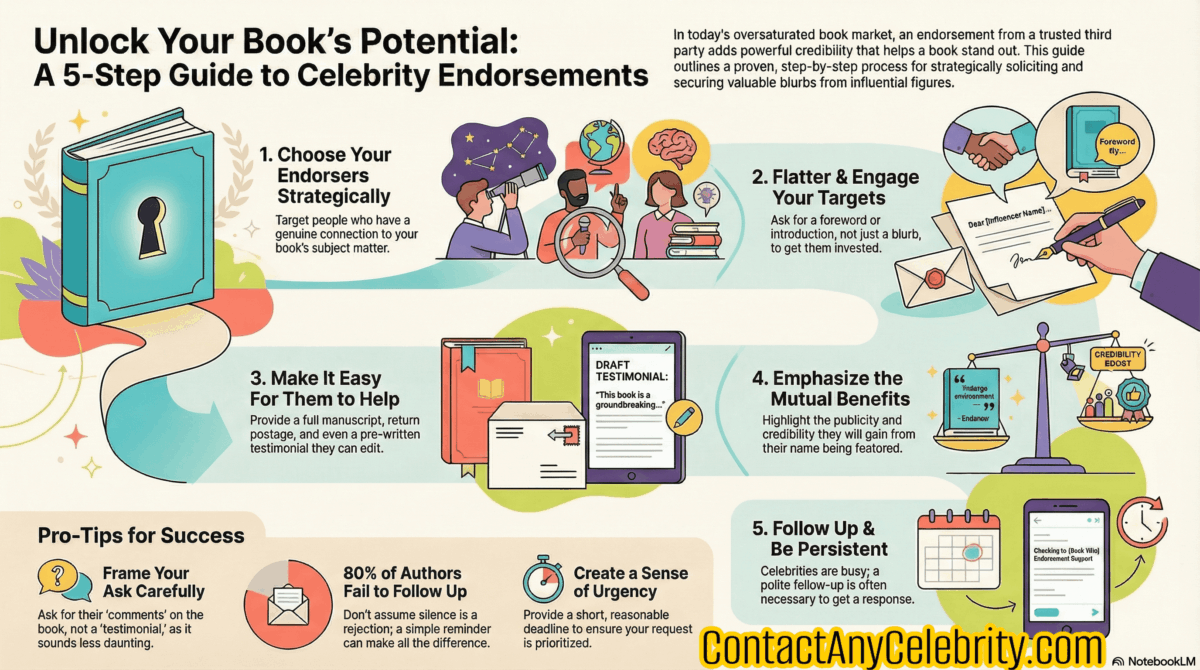
A book endorsement is a quote or recommendation from another person, usually an expert in the field or a well-known public figure, that speaks to the quality and value of your book.
Getting a book endorsement can be a challenging process, but there are a few steps you can follow to increase your chances of success.
First, you must identify potential endorsers who fit your book well.
“This is my biggest piece of advice: Get celebrity testimonials. Go to Contact Any Celebrity, which has about 60,000 celebrity addresses. Write to a celebrity and explain your concept. Listen, many celebrities are looking to get their names on book covers. Don’t think they don’t want the publicity. They do.”
– Joyce Keller, Endorsed by Regis Philbin & Author of ‘The Joy of Miracles’
Next, you’ll need to reach out to these potential endorsers and pitch your book compellingly and professionally.
Finally, you’ll need to follow up with any potential endorsers who show interest in your book and work with them to finalize the endorsement.
With a little effort and persistence, you can secure book endorsements that can help to promote your book and boost its sales.
It may seem hard to believe, but you are just an email, blog post, phone call, or snail mail away from connecting with famous, influential people who might be willing to write a foreword for your book or pen several sentences that can be used as an endorsement on the front or back cover of your books.
If you are doubtful, consider this: Tom Caraccioli reached former Vice President Walter F. Mondale through directory assistance in Minnesota.
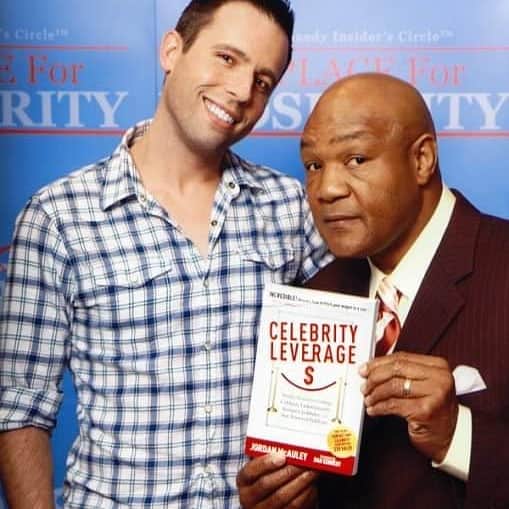
At the time, Caraccioli and his twin brother were writing ‘Boycott: Stolen Dreams to the Moscow Olympic Games,’ a book about the 1980 U.S. boycott of the Olympic Games during the Carter/Mondale administration.
The Caracciolis had strong connections to the sports world but little political traction.
An earlier attempt to connect with former President Jimmy Carter hadn’t panned out, nor had their initial idea of connecting to Mondale through his daughter’s workplace.
That’s when the idea of trying directory assistance occurred to Tom Caraccioli.
Within seconds, Caraccioli spoke to a receptionist at Mondale’s law firm.
Still unsure of his good luck, he asked, “Is this the office of the Vice President?”
Assured that it was, Caraccioli briefly told the receptionist about his book and why he hoped the former Vice President would be willing to discuss his involvement in the boycott.
The receptionist promised to relay Caraccioli’s request to Mondale.
She called the next day to say that Mondale was willing to be interviewed, and about a week later, the interview took place.
It went so well that Mondale also agreed to write the foreword for the book.
The Caraccioli brothers’ experience illustrates the art of the possible — how daring to dream big and take a chance can have its rewards.
With a little digging, a lot of persistence, and adherence to some established principles that follow, you, too, could have your book endorsed by a household name.
After all, as Thomas J. Madden, author of ‘Spin Man’ and a former vice president at NBC, says, “Famous people often want and like to be associated with good books.”
Here’s what you need to know.
How To Be Selective…
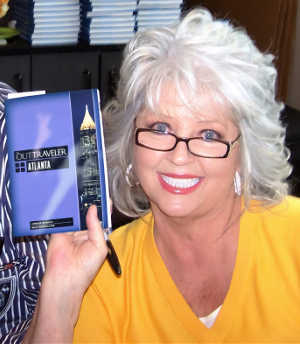
As you write your book, start thinking about what celebrities, CEOs, and athletes might genuinely be interested in the topic.
It’s not enough to ask for an endorsement from someone just because they are well-known.
When the time comes, you’ll need to make a short but thoughtful case for why you have chosen them to comment on your book.
You’ll also need to establish a personal connection, perhaps pointing out how you know them (maybe you subscribe to their newsletter, went to the same university, know someone they know, or support the same cause), so they quickly grasp why you sought them out.
Remember not to ask too many people, Madden observes, or you’ll risk losing face if word gets around that you’ve blanketed the industry.
Whom should you consider?
If you are working on a nonfiction book, you probably already know who the most respected members of your industry are.
You can also set your sights on some authors who have written bestselling books in the same field but are not direct competitors.
Sharon Armstrong, the author of ‘Stress-Free Performance Appraisals,’ found a shortcut to this process when she attended a conference with other human resources professionals.
The on-site bookstore at the conference had a helpful list of all the titles it offered and their authors.
This jogged Armstrong’s memory of the individuals she admired most.
When she subsequently emailed them explaining her connection to them, most were happy to give her a testimonial.
As you put together your wish list, don’t rule out people you’ve had previous contact with in situations that did not work out as you hoped.
When Marcia Yudkin wrote her first book, ‘Freelance Writing for Magazines & Newspapers’, she solicited comments from C. Michael Curtis of ‘The Atlantic’ even though he had rejected every story she had ever pitched him.
Still, he had always written her personalized rejection notes containing ample encouragement.
She reminded him of that when she asked for his comments on her book.
This time, Curtis came through.
He wrote:
“Anyone who buys Ms. Yudkin’s book can count on a huge return on his or her investment. I don’t think I’ve ever read a dissection of my professional that was as thorough, fair-minded, and full of genuinely helpful information.”
How To Find The People On Your Wish List…
Once you have decided whom you wish to solicit comments from, you’ll need to locate them.
Many of these individuals will have an Internet presence — a website, Twitter account, Instagram, TikTok, or Facebook page that can provide you with a means for contacting them or someone they have hired to monitor these social networks for them.
So using a search engine like Google is your first step.
If your Internet search doesn’t turn up anything helpful and the person has written a book, you might glean some relevant information by reading the acknowledgment page.
You might find the name of the person’s agent, who will likely have contact information online, and perhaps notice that you know one of the people the author has thanked.
You can also ask everyone you know if they have a connection to that person or know someone who does.
Shel Horowitz, a marketing expert experienced in securing testimonials, recently decided he wanted a superstar to write the foreword for his book, “Guerrilla Marketing Goes Green.”
Shortly before press time, Horowitz used his popular blog to ask readers if they could provide him with an introduction to Al Gore, Jimmy Carter, Bill Gates, Wally Amos, Malcolm Gladwell, or other people of the same stature.
In return, he promised his readers that he would acknowledge them in his books and expose them in his newsletters.
So far, his request has led to a connection to actor Leonardo DiCaprio and Stonyfield Yogurt founder Gary Hirshberg.
When To Ask And What To Say…
No one likes to impose on someone else.
There are several ways to get what you need from the busy people you will be asking, which makes the task easier for all concerned.
One of the best and perhaps most surprising comes from Yudkin, who advises that you not use the word ‘testimonial’ in your request.
She points out that someone who has never written a blurb might think the task is more complicated than two sentences about the book.
Instead, she suggests asking for their comments and then, if they are positive, asking them for permission to use them.
Yudkin, who now gets requests to blurb people’s books, says asking for an outright testimonial can be presumptuous because you should not assume someone will like your book.
She notes that another essential ingredient in your request is providing a short deadline to ensure that your request does not get pushed aside by more pressing obligations.
She once got blurbs from people she contacted within a day by promising them a chance to be on the cover if they responded within 24 hours.
All but one person met her short deadline.
You’ll probably want to set a deadline that is several days away.
Most experts interviewed for this story agreed it is best to send your targets your entire manuscript rather than just an introduction, table of contents, and a few chapters.
Since their reputation is involved, they have the right to determine that the book is something they want to be associated with by viewing as much of it as they care to.
However, there is a way to get testimonials from people by just sending them a chapter of your book — if you get started early enough.
Yudkin and Dan Poynter, authors of ‘The Self-Publishing Manual,’ suggest you mail single chapters to expert opinion makers for their feedback.
Send each chapter to four people and include a self-addressed, stamped envelope with your request.
Should the comments be complimentary, you can express your appreciation and ask the person if they would be willing to endorse the book.
By sending different chapters to the people you ask, you’ll quickly learn if your work in progress is on the mark and, at the same time, collect some nicely varied testimonials.
Write Testimonials For Them…
Some authors favor writing sample testimonials for the people they ask to endorse their books, reasoning that this will save them time because all they have to do is pick one or make changes.
“Chicken Soup for the Soul” author Jack Canfield is one of the book marketing experts who endorse this approach.
At a recent presentation for Steve Harrison’s Quantum Leap Program, Canfield suggested writing three different sample blurbs for every person solicited.
Yudkin disagrees.
She says, “I don’t think they come off sounding different and believable.”
To ensure that the testimonials she gets are dissimilar and on point, she might ask each person to address a different question about the manuscript (ex: who do you think might be most interested in this book and why?).
How To Follow Up…
If you don’t hear back from people whose opinions you have solicited, don’t assume they are uninterested.
Yudkin estimates that 80 percent of blurb seekers fail to follow up.
Sometimes, a reminder is all that is needed to jog someone’s memory of the unfulfilled obligation.
A reminder helped Marcia when she was stuck trying to write a blurb for an updated version of a book she had previously endorsed.
She didn’t want to take the time to re-read the new version to see how it differed.
Fortunately, the author contacted her again, saying he was saving space for her, and asked if he could do anything to help.
That second contact made her realize she didn’t need to know how the two versions differed but merely write a general endorsement based on why she continued to respect the book and how it would help readers.
Canfield has another suggestion that could help when someone has not responded.
It helped him land humor writer Dave Berry, who had not responded to his endorsement request.
Canfield told Berry the names of other famous people he had lined up, adding, “But we still need you too.”
If you are turned down, something good may still come out.
Chris Angermann, editor-in-chief for New Chapter Publishing, says to ask people who turn you down to refer you to someone else.
If you successfully get testimonials, you, too, may find yourself being solicited by other authors to help them with their books.
The Power Of One Good Book Endorsement…
Author Shel Horowitz knows that well-crafted testimonials from powerful people sell books. At networking events, he has witnessed potential book buyers’ eyes widen in surprise as they read this blurb from Jack Canfield on the back of Horowitz’s “Principled Profit” book.
They often say, “Wow, I need this book,” and hand him $20 for their copy.
Here are the 65 words that produce that astonishing result:
“Chicken Soup’s success is based on the reality that most people want to help others and do the right thing. In ‘Principled Profit: Marketing That Puts People First,’ Shel Horowitz shows that not only do people *want* to change the paradigm toward cooperation and people-centered behavior, but they can profit handsomely. I’m delighted to recommend this book.”
— Jack Canfield, CEO, Chicken Soup for the Soul Enterprises, Co-author, ‘Chicken Soup for the Soul at Work’
Additional Tips…
✔ Want to meet celebrities? Jack Canfield says you can boost your chances by flying first class, attending events where celebrities will be present, and buying backstage passes to rock concerts.
✔ Marcia Yudkin suggests that blogs can be good sources for testimonials. If you have frequent contributors to your blog, you might ask if they would like an advanced copy of your book or invite them to ask for a free chapter. And if you regularly comment on certain people’s blogs, you might point that out to them when you solicit their comments on your book.
✔ Don’t stop getting blurbs once your book is at the printer. Shel Horowitz has 80 blurbs on his website. When he gets fan mail, he sometimes asks the person who wrote it if he can quote them on the site.
✔ Don’t discount the testimonials of ordinary people. In addition to some higher caliber celebrities and executives, the comments from ordinary, relevant people are also valuable, Horowitz notes. For example, if you have written a parenting book, the comments of Cheryl Jones, mother of two in Omaha, might strike a chord with other prospective book buyers.
✔ If you are told that the person’s publisher won’t allow them to write a testimonial, you are likely being fed a line. Chris Angermann says publishers are fine with their authors helping other writers.
✔ Thomas Madden advises sending potential endorsers a half-page note explaining why you’ve asked them to comment on your book and a short synopsis. That way, they won’t feel obligated to read the entire manuscript.
Getting a high-profile endorsement for your book can be a game-changer.
Imagine a potential reader browsing the shelves and coming across your work. If they see glowing praise from a respected celebrity or industry expert, they’ll be far more likely to give it a closer look.
Testimonials, forewords, and quotations from influential figures are powerful marketing tools to set your book apart.
In today’s oversaturated book market, standing out is crucial. With over 400 new titles published daily, readers are inundated with choices. They rely heavily on reviews and endorsements to help them navigate the sea of options. Anything you say about your book may be self-serving, but an endorsement from a trusted third party carries far more weight.
Consider the runaway success of books like Harvey Mackay’s “Swim with the Sharks,” which featured 44 testimonials from luminaries like Billy Graham and Robert Redford. These high-profile endorsements didn’t happen by accident – Mackay actively solicited them. Many authors now follow his lead, gathering endorsements to include on their manuscripts, grabbing the attention of agents, publishers, and booksellers.
The irony is that many established authors who now refuse endorsement requests likely benefited from them when they started. As literary agent Richard S. Pine noted in The Wall Street Journal, “The irony is that I’ll bet every author no longer giving blurbs got them when they started.”
So, how can you harness the power of celebrity endorsements for your book?
Follow this proven 5-step process:
Step 1: Choose Your Endorsers Strategically
Contact 59,000+ celebrities, influencers, and public figures using our online database.
The key is to target people who genuinely connect to your book’s subject matter. If your work concerns animal welfare, go after celebrities known for their advocacy. If it concerns a specific health condition, look for experts and patient advocates in that field.
Use resources like our Celebrity Causes Database to identify potential endorsers based on their interests and causes quickly. You want to find individuals whose names and expertise resonate with your target readers.
It’s also important to avoid asking endorsers unrelated to your book’s content. As author and skydiving expert Dan Poynter noted, “Please do not ask Dan Poynter to endorse your book unless it is on book publishing or skydiving. His endorsement of other subjects would not be appropriate or valuable.”
Step 2: Flatter & Engage Your Targets
Don’t just ask for an endorsement outright. Instead, ask your targets to write the book’s introduction or foreword. This flatters them and gets them invested in the project.
Emphasize that their expertise would be invaluable in setting the stage for your work. Mention the exposure they’ll gain when their name is featured prominently. This approach is often more successful than a direct request for a blurb.
As author Ken Blanchard, co-author of “The One Minute Manager,” says, “I don’t write my books; my friends write them for me.” He explains that he jots down ideas and sends them to friends for comment, who then provide valuable feedback that he incorporates into the manuscript. This “peer review” process can yield powerful endorsements.
Step 3: Make it Easy for Them to Help
Provide your potential endorsers with everything they need–a full manuscript, a pre-paid return envelope, and a simple testimonial form. The less work required, the more likely they are to follow through.
You can also offer to send them a confidentiality agreement if they hesitate to share the full manuscript. This can help put their mind at ease and increase the chances of them providing a ringing endorsement.
“It is easier to edit than create,” advises Poynter. “Give your testimonial prospect something to alter.” Providing a draft testimonial allows them to tweak and personalize it rather than starting from scratch.
Step 4: Emphasize the Benefits
Contact 59,000+ celebrities, influencers, and public figures using our online database.
Most celebrities and experts are happy to provide an endorsement, as it gives them additional publicity and credibility. Ensure that to highlight this upside, their name, and title will be featured, bringing them more exposure and recognition.
You can even mention that the better the testimonial, the more prominently it will be displayed, whether on the book’s cover or within the pages. This can incentivize them to craft a truly compelling endorsement.
Step 5: Follow Up & Be Persistent
Contact 59,000+ celebrities, influencers, and public figures using our online database.
Don’t be discouraged if you don’t hear back right away. Celebrities are busy, and your request may get lost in the shuffle. Follow up politely after a few weeks, and keep trying. With patience and politeness, you can often get that coveted endorsement.
As Poynter advises, “Know that getting a good endorsement or testimonial can take time. Celebrities and VIPs are busy, and their mail is often screened by an assistant or representative, which can delay your request from getting to them.” Stick with it, and you’ll eventually break through.
Remember, the magic of celebrity endorsements lies in their power to build trust and credibility. By following these steps, you can unlock that power and give your book the boost it needs to stand out in a crowded marketplace.
Sample Book Endorsement Request Form
Thank you for considering endorsing [Book Title] by [Author Name]. Your expertise and influence in this area would be invaluable in helping readers discover this important work.
Please review the suggested endorsement below and make any edits or additions. Once you are satisfied, sign the form and return it in the enclosed pre-paid envelope.
Suggested Endorsement:
Customize the endorsement below for each person.
Insider Tip: Write your endorsement! This makes it easy for them to reply by just signing off. Of course, they can also write their own. Be sure to tell them they can plug their own book in their endorsement!
“[Author Name]’s new book, [Book Title], is a must-read for anyone interested in [subject area]. As an expert in [relevant expertise], I was impressed by the depth of research and practical insights presented throughout. This book is a game-changer for [target audience].”
– [Endorser Name], [Endorser Title]
[ ] I approve the endorsement as written above.
[ ] I would like to modify the endorsement as follows:
Signed: _________________________________ Date: ____________
[Endorser Name], [Endorser Title]
[Endorser Organization]
Please return this form in the enclosed pre-paid envelope to:
[Your Name]
[Your Address]
Thank you again for your time and consideration.
I look forward to featuring your endorsement in this important book!
Sincerely,
[Author Name]
Book Endorsement Examples…
Contact 59,000+ celebrities, influencers, and public figures using our online database.
Here are a few examples of powerful book endorsements:
“This is the first book I recommend to new publishers.” – Jan Nathan, Executive Director, Independent Book Publishers Association
“One essential ingredient to our ‘Chicken Soup for the Soul’ success was consulting with Dan Poynter in the early stages.” – Jack Canfield, Co-author, ‘Chicken Soup for the Soul’ series
“Dan Poynter has generously guided thousands to authorship. Their books make this a better world.” – Dr. Robert Muller, Past Assistant Secretary General of the United Nations and author of ‘2000 Ideas & Dreams for a Better World’
“If you want to write a book that sells, this is the blueprint. Highly recommended!” – Lisa Nichols, #1 New York Times bestselling author of ‘Abundance Now’
“This book is an essential roadmap for any aspiring author looking to get their work noticed and into the hands of readers.” – Patrick Lencioni, Bestselling author of ‘The Five Dysfunctions of a Team’
These examples show how to structure an effective endorsement. They’re concise, highlight the endorser’s credibility and relevant expertise, and convey a clear, compelling message about the book’s quality and value. The specific, vivid language also makes the endorsements more impactful.
Join 200,000+ Businesses, Fans, Authors & Nonprofits:
About Contact Any Celebrity…
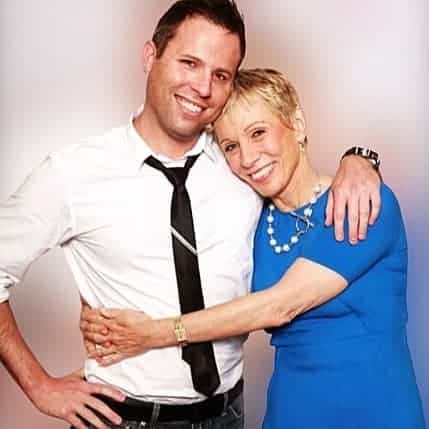
Jordan McAuley, Founder
Contact Any Celebrity is featured by CNN, American Writers & Artists Institute (AWAI), American Express, Build Book Buzz, CEO Magazine, Digital Marketer, E! News, Entrepreneur Magazine, Fast Company, Forbes, Fox News, Indie by Nature, Launch Grow Joy, New York Post, Newsweek, Nonfiction Authors Association, O’Dwyers Public Relations, Robin Samora PR, The Wrap, Tim Ferriss in “The 4-Hour Workweek,” USA Today & More.
Join 200,000+ Businesses, Fans, Authors & Nonprofits:
